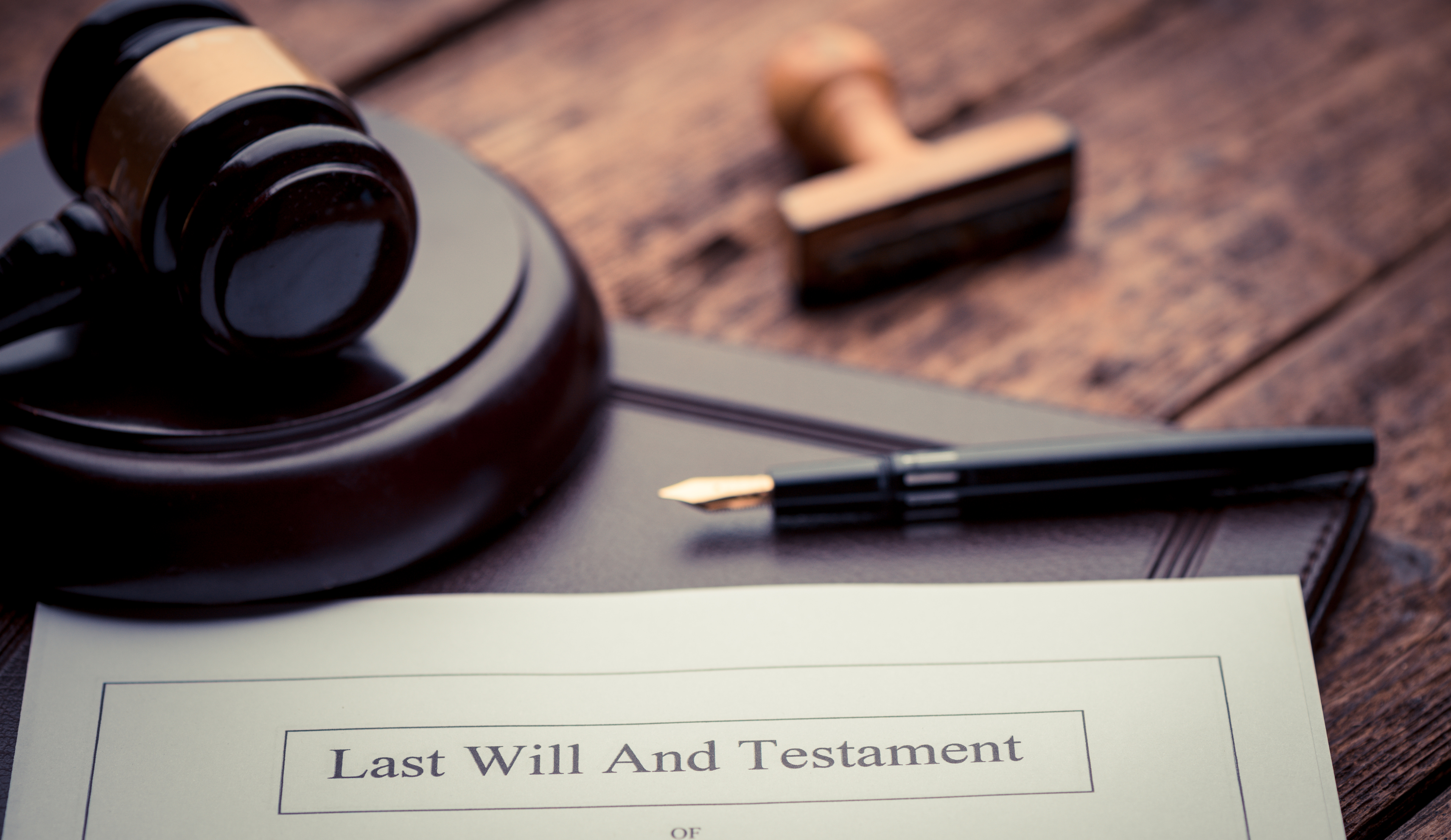Why Does an Estate Have to Go Through Probate? Is it Always Needed?
This article explains the purpose of going through probate, who and how to apply for Grant of Probate
What is the purpose of Probate?
Probate is the legal process overseeing how the assets of a deceased person are distributed. Its purpose is to ensure that the deceased’s estate is handled according to their wishes.
Upon the death of a loved one, there are two main routes to take in dealing with the assets they left behind. Each route requires a specific legal process and which one you take depends on whether your deceased relative left a valid written will or not.
If they did, you would apply for a Grant of Probate. If they did not leave a valid will, it means they died intestate, and you would need to apply for a Grant of Letters of Administration.
This article will discuss on the process involved in applying for a Grant of Probate and answer the following questions:
Table of Contents
Why Apply for a Grant of Probate and Who Should Submit the Application?
How Do You Apply for a Grant of Probate?
What Are the Fees and Costs of Obtaining a Grant of Probate?
Are There Other Options Than Applying for a Grant of Probate?
What If the Deceased Had No Will?
Do You Need an Attorney to Prepare an Application for a Grant of Probate?
Why Apply for a Grant of Probate and Who Should Submit the Application?
A close relative of the deceased needs to apply for a Grant of Probate so that the court can legally recognise the will and authorise the executor(s) to manage and distribute the deceased’s assets as spelled out in his/her will. This ensures that the deceased’s wishes are carried out regarding the distribution of his/her assets.
In writing his/her will, your loved one will have stated who they wanted to manage their estate and distribute their assets. If this person is a man, they would be called the “executor” and if they’re a woman, they are called the “executrix.” The executor is the person entitled to apply to the court for a Grant of Probate.
Note: to make it easier for the reader, we will use the term “executor” when referring to both the executor and executrix in this article.
How Do You Apply for a Grant of Probate?
The executor starts the process by applying to the Family Justice Courts for a Grant of Probate. This should be applied for within six months of the deceased’s death. If you submit the application later, you will need to explain your reasons for waiting.
Before submitting your application, you will need to have the original death certificate and original will. Once you have those, you will need to get a lawyer to make you certified true copies of both documents.
A “certified true copy” is a document that certifies that the original has been shown to a lawyer who examines it before making a copy. The copy is then stamped by the lawyer, certifying that it is an exact match of the original. The reason for doing this is so that the originals can be kept in a safe place while ensuring that the copies are a true match.
You will use both certified true copies when you submit your application to the court. But you will also have to provide the deceased’s original will to the court, so it can examine it when verifying its authenticity. Once this is done, the original will be given back to you.
You will also be required to prepare the following documents to be filed with the court:
- Ex parte Originating Summons
- Statement of Probate
- Caveat Search Report
- Probate Search Report
- Administration Oath
- Supporting Affidavit
- Schedule of Assets
What Are the Fees and Costs of Obtaining a Grant of Probate?
If your loved one left an estate worth up to $3 million, the total cost of applying for a Grant of Probate would be about $570. The fees and costs would be for filing fees for the court, making the certified true copies of the documents discussed earlier, and for conducting the searches. The costs will depend on how many applicants there are and the number of pages in the filing.
In the event that documents are rejected, there is a fee of $5 per rejected document. If you submit incomplete documents or ones with incorrect or missing information, they will be rejected. For example, if you forget to attach the certified true copy of the death certificate, forget to sign the Supporting Affidavit, or submit outdated caveat or probate search reports.
If you engage a probate lawyer, he/she will most certainly charge legal fees for the work done on your application. Those fees will be based on their hourly rate and how much time he/she spends working on your application.
A lawyer who specialises in probate work will probably take less time preparing your application than a lawyer with less experience who would have to do hours of research on the law. So, even though their hourly rate may be higher than the rate charged by the lawyer with less experience, their total bill may be less.
Are There Other Options Than Applying for a Grant of Probate?
The other options to having the executor apply for a Grant of Probate for permission to administer the deceased’s estate would be if the estate is valued at less than $50,000. In this case, you may be allowed to apply to the Public Trustee and have them administer the estate.
This is a government agency that would essentially be the trustee of the deceased’s estate and ensure that his/her assets were distributed to the beneficiaries entitled to receive them.
There are certain situations in which the Public Trustee is not allowed to administer an estate, which are:
- When an application has already been made for a Grant of Probate or Letters of Administration from the court. Duplicate applications of the same type are not supposed to be made to the court.
- Conflicting claims have been made to the court
- The beneficiaries are in dispute
- There are outstanding liabilities and/or debts in the estate
- The deceased owned shares or had other types of ownership interests in unlisted local or foreign entities.
- The deceased was a sole proprietor, a partner in or had an interest in some type of business
- The deceased was the only owner of an HDB flat, and his/her child is entitled to inherit the flat as a whole or in part\
- There are legal proceedings currently pending in which the deceased was involved
- The deceased had insurance policies in which one or more individuals were nominated as beneficiaries
- The deceased opened trust bank accounts with a child
- The deceased’s estate has commercial vehicles, like taxis
If none of these situations apply, just go to the Office of the Public Trustee E-Services’ website and apply to have the Public Trustee administer the deceased’s estate.
The documents that you will need to submit with your application are the deceased’s birth, marriage, and death certificates, along with a list of beneficiaries if applicable. Once your application has been submitted online, you will be assigned a case officer who will let you know if there are any errors that need correcting in your application and what the next steps will be.
If your application is approved, the Public Trustee will manage the deceased’s estate and distribute his/her assets. If the deceased was non-Muslim, the Public Trustee will abide by the Intestate Succession Act. If the deceased was Muslim, the estate will be administered according to the Administration of Muslim Law Act. Once your application is processed, it should take about four weeks for the estate to be fully administered.
What If the Deceased Had No Will?
If the deceased did not have a valid will, a different route is required. In this case you would need to apply for a Grant of Letters of Administration. The deceased’s spouse and/or close relative is typically granted the Letters of Administration by the court. This decision is ultimately up to the court as it has full discretion as to who should administer the estate, and it could be more than one person.
If you want help on the procedure for preparing and submitting your application for a Grant of Letters of Administration, please read our other article on that topic.
Once you’ve been granted the Letters of Administration, you must abide by the Intestate Succession Act in distributing the deceased’s assets. The persons who are entitled to inherit the assets are clearly spelled out in this law.
Do You Need a Lawyer to Prepare an Application for a Grant of Probate?
Although it’s perfectly fine if you want to prepare your application for a Grant of Probate or a Grant of Letters of Administration yourself, you may want to hire a probate lawyer to do this for you.
This can be a complicated process for someone with no experience, so unless you have a lot of time on your hands to research all the documents that need preparing and how to do this correctly, it can be overwhelming. You might want to weigh the cost in time of doing this on your own versus how much it would cost you financially to engage a probate lawyer.
Depending on how complicated your matter is, engaging a probate lawyer can not only save you time, but also the stress of wondering if you’ve done everything correctly, obtained the right documents and submitted them properly.
Disclaimer: The information provided in this article does not constitute legal advice. We recommend that you get the specific legal advice you need from an experienced attorney prior to taking any legal action. While we try our best to make sure that the information provided on our website is accurate, you take a risk by relying on it.
At Pinnacle Estate Agency, we strongly believe in sharing our real estate knowledge to the public. For more content like this article, check out our Singapore Property Guides.













